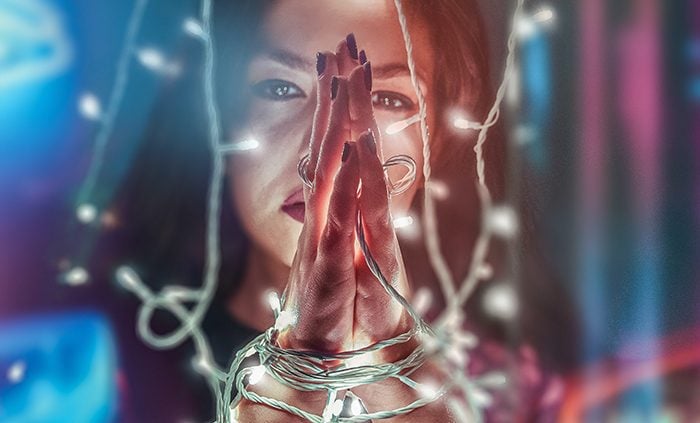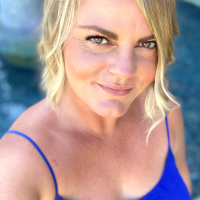Elephant’s Continually-updating Coronavirus Diary. ~ Waylon
~
Thank you, Coronavirus, for uniting us. We are all together. This is happening for us, not to us. Maybe this is a pause and refresh.
It’s a nice idea, and boy would I love to hop on that bandwagon and believe, even part-heartedly, that this pandemic would make a truly meaningful, lasting change.
These types of articles are plastered across media outlets in all corners of the world, which goes to show that there is a global hope for this sort of magic. And perhaps that is one way in which we truly are united—in our hope.
But I don’t see many other ways that we are truly becoming, for once, unified.
In stores, shelves remain empty of must-have staples that were never gone before. Not just disinfectants and toilet paper, but foods like pasta and rice. If this isn’t an indicator that we still very much live in an every-man-for-himself type of society, I don’t know what is.
Young folk hang with friends in the street, too close, as college kids party the first night of a shelter-in-place. A week later, 25 to 50 people gather to “exercise their rights” to dine wherever they please: hashtag “fakepandemic.”
Along the creek, strangers running and cycling do not take the time to space six feet apart. They huff and puff like clumsy whispers into each other’s ears as scientists publish data suggesting that the virus may be spread through water vapor in our words, our very breath.
I cannot help but observe that our own pleasures and comforts seem to remain superior to the health of strangers, and more heartbreakingly, our neighbors, friends, and family.
Still, the most telling indicator of the true change to come is found right within us. If we ask ourselves this question, a clearer picture of the future begins to emerge:
Have I changed as a result of this pandemic and its consequences?
At the risk of opening myself up for some serious ridicule, I have not.
Aren’t we here for mindfulness? For hope? Aren’t we here for spirituality and enlightenment? How is this any of that?
Mindfulness is about being aware of the mechanisms going on within us and outside of us in any given moment—being here, right now. Hope—real hope—can only stem from clear-headed mindfulness. Spirituality can’t be authentic if we pay attention to the good vibes only, and refuse to acknowledge that life is duality—a negative to a positive at every turn of the way, a loss of some sort in every gain.
Most importantly, enlightenment entails the presentation of multiple viewpoints. It means seeing what is, not what we want to see, or what would make us more comfortable. Oftentimes, enlightenment means, in no eloquent language, fully embracing the suck.
That said, I am fully aware that I am not every person, and that each of us is going through our own processes as the entire globe responds to an event never before seen on this scale.
But I’m willing to bet that many of us haven’t changed drastically.
We haven’t all started planting gardens in our backyards, or better yet in our front yards to share with those less fortunate than us. We haven’t all decided to spend twice as much of our own money getting takeout every meal to show support for the local restaurants in town. If we had, we’d see a lot more food remaining on the shelves.
If we’re lucky enough to have remained employed, we haven’t all talked to our companies asking if we can reduce our hours and pay to go make sandwiches for kids whose nutritional needs were met by school programs. We haven’t, many of us, asked to give a portion of our wages to the colleague whose family is now pushing through with only one income and the loss of health insurance.
We can all make our own list of the things that we “could” do if we were willing to make our own lives whatever percent more uncomfortable. And I say this of myself as well as others; being selfish is an unavoidable part of the human experience. And that’s just the point.
That self-awareness is what allows us to be creative in finding the things that we could do and will.
For every item that there is on the list of things we “could” do, but won’t because it selfishly will make us uncomfortable in ways in which we are unwilling to be, there is something that we could and would happily do.
Maybe we’re not buying all of our meals from the local restaurant. But maybe we can and would like to commit to buying one meal per week. Maybe we make it some place new each week. Maybe we make it the same place because we love it so much, we can’t bear to see it go away.
Maybe we aren’t willing to take a pay cut for our co-worker, or a reduction of hours to go feed kids sandwiches every day. But maybe we can offer to treat that co-worker or a struggling neighbor and their family to a pizza night.
I like finding happy mediums; and there are plenty to find when we are willing to look at our dark sides and see what we could do but won’t.
This stretches, on a larger scale, into a societal need.
We have to be willing to look at and really listen to the ways that we aren’t willing to connect with others to identify ways that we can start to bridge our gaps.
The hoarding of food and other resources or—let’s get personal—my own hunkering down financially in a time where I am knowingly a little more privileged than some, is demonstrative of one area where a vast majority are unified—and it’s not a joyful union.
We are, so many of us, unified in either a reality or a perception of lack.
I do not give of my finances, for example, because I am afraid that I soon will not have.
Turning the table, what does lack look like to, say, an “everyday” California millionaire whose house might also take up a third of their income when they’re now out of a job?
Lack of comfort. Lack of ability to care for themselves, or their family. Lack of preparedness. Lack of ability to pay down debt. Lack of control. Lack of yesterday’s reality.
For each liberal, or moderate, or conservative, or any other type of identity that hopes that the other sides will come through this with a transformative understanding of someone else’s reality, or a drastically shifted paradigm, there is an equal and opposite hope.
There will be no utopian society at the end of this.
But this pandemic can change our internal worlds if we let it, so that we can strive each day to better understand ourselves—both the dark sides where we tend to sow thoughts of lack and hide our weaknesses, and the bright sides where we know ourselves to be capable of sprouting abundance and boast our strengths.
This pandemic can change our internal worlds if we let it, so that by understanding ourselves, we might be able to take one step closer to looking into another’s reality and partaking in a reciprocal gift exchange of understanding.
This pandemic can change our internal worlds if we let it, so that in beginning to understand another’s reality, even if we disagree, we might be able to find one more commonality in what can seem to be a sea of only differences to our narrow but expanding minds.
No, a few months of this pandemic won’t save the world. A few months of a pandemic won’t erase thousands of years of learned hierarchical societal behavior.
But we can. Slowly. With great effort and hardship.
Are you in? What’s one thing you can and will do?








Read 5 comments and reply